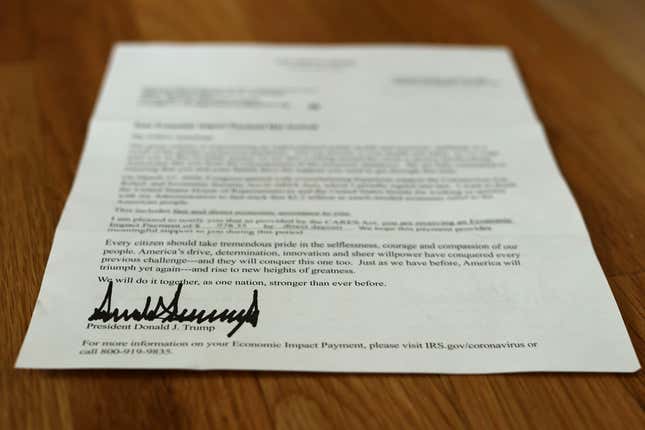Recently, Kaiser Health News, a nonprofit publication that covers health policy, asked the country’s major health insurers how they were managing a very specific and American problem: The hospital bills received by people who were treated for an illness that was almost certainly covid-19, but were unable to get tested, and thus were not eligible to receive the free care mandated by the state.
For the most part, these people were sent to the ER with symptoms like shortness of breath and high fever. They all tested negative for the flu. In one case, a patient returned from a cruise in early March and was immediately referred by his primary care physician to a local hospital, who considered getting his patient quarantined “a matter of public health.” The patient was treated by nurses in protective gear.
At the time, testing was only available for people who had recently returned from China. The news was full of statistics about “presumptive positive” instances of the virus that four months later would come to infect nearly 3 million in the States. The specific man Kaiser spoke to recovered, but was also billed almost $3,000 for his short hospital visit. Now, he’s doing what is by most accounts the most useful thing a person with a surprise hospital bill can do: Talking to reporters, whose publicity may pressure an insurance company to negotiate that number down out of concern for its reputation.
No longer a series of waves that might crest and recede, the pandemic is a sort of omnipresent muck, the stage on which everyday life is set.
In mid-March, Congress passed legislation requiring insurers to waive the cost of testing and treatment for coronavirus-related care, with the caveat that a patient must have documentation of a positive test. For much of March and April, this was an impossible task, with widespread equipment shortages and strict guidelines about whose risk of infection warranted a swab. Kaiser’s reporting joins a raft of stories about people with bills and harrowing experiences but, due to federal mismanagement and a compounded series of bureaucratic failures, no conceivable way of providing receipts.
It’s a tight metaphor for what’s going on across the country right now, as Americans are forced to spend long hours trying to prove what should be a series of obvious facts: People are getting sick, and they’re losing their jobs. They’re getting evicted and leaving the workforce because there is no way to have both a child and a career when kids are indefinitely home. No longer a series of waves that might crest and recede, the pandemic is a sort of omnipresent muck, the stage on which everyday life is set.
As the Washington Post reported yesterday, the Trump Administration, on the cusp of withdrawing from the World Health Organization, hopes to downplay this new reality, normalizing mass suffering until hundreds of thousands of new cases every day are considered banal. But as the federal government’s messaging urges Americans to “live with the virus being a threat,” its systems of material aid are based on the assumption that anyone seeking help is probably trying to commit fraud, placing the burden on patients and workers to prove they’re living through a pandemic at all. It’s a comparatively small but bewildering offense, making Americans file so much paperwork to show they’re living through a boundless global event.
The government’s systems of material aid are based on the assumption that anyone seeking help is probably trying to commit fraud, placing the burden on patients and workers to prove they’re living through a pandemic at all.
Quite a bit has been written about how terribly ill-equipped the United States was to deal with the pandemic compared to its peers: We’re the only wealthy country without universal and accessible health care; our electorate, conditioned to treat poverty as a product of some great moral failing, has been unable to muster up anything but the most symbolic demonstrations of aid. But this is also the country where, until recently, one of the big questions about social welfare was whether it was appropriate to require state health insurance recipients to log in to an online portal and prove they were working a certain number of hours each week. Many Americans receiving expanded pandemic unemployment still have to prove, somehow, that they’re actively looking for employment even as entire industries evaporate and six states have reversed their reopening plans.
It was foreseeable that Americans would spend the early-onset apocalypse arguing with insurance administrators and filling out broken online forms. In the richest nation in the world, pandemic relief is being built on top of systems calibrated for decades to understand people in need of help as, more than anything, potential criminals. Requiring proof of a positive covid diagnosis for discounted health care draws on the same moral judgment that accompanies asking the state for unemployment funds.
Last month, a policy analyst with the unemployment law group testified in the Senate that the “over-concentration on suspicion of fraud” had significantly contributed to the long wait times and denials that resulted, for instance, in one in four Floridians being unable to secure aid. “States have programmed their computer systems to pause applications at every decision point,” he said, to keep governments from having to pay for anything but the direst need. These have always been malicious tricks to play on people facing difficult circumstances. But in the face of the most consequential event of anyone’s lifetime, it’s never been clearer that forcing the sick and unemployed to endlessly certify the scope of their misfortune isn’t just randomly cruel—it’s what the system was meant to do.

